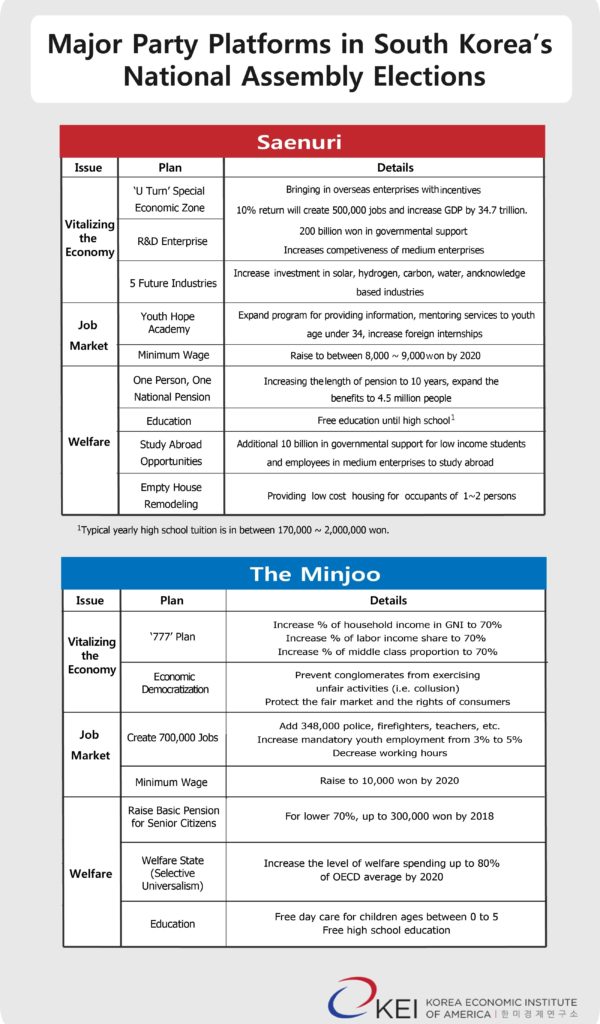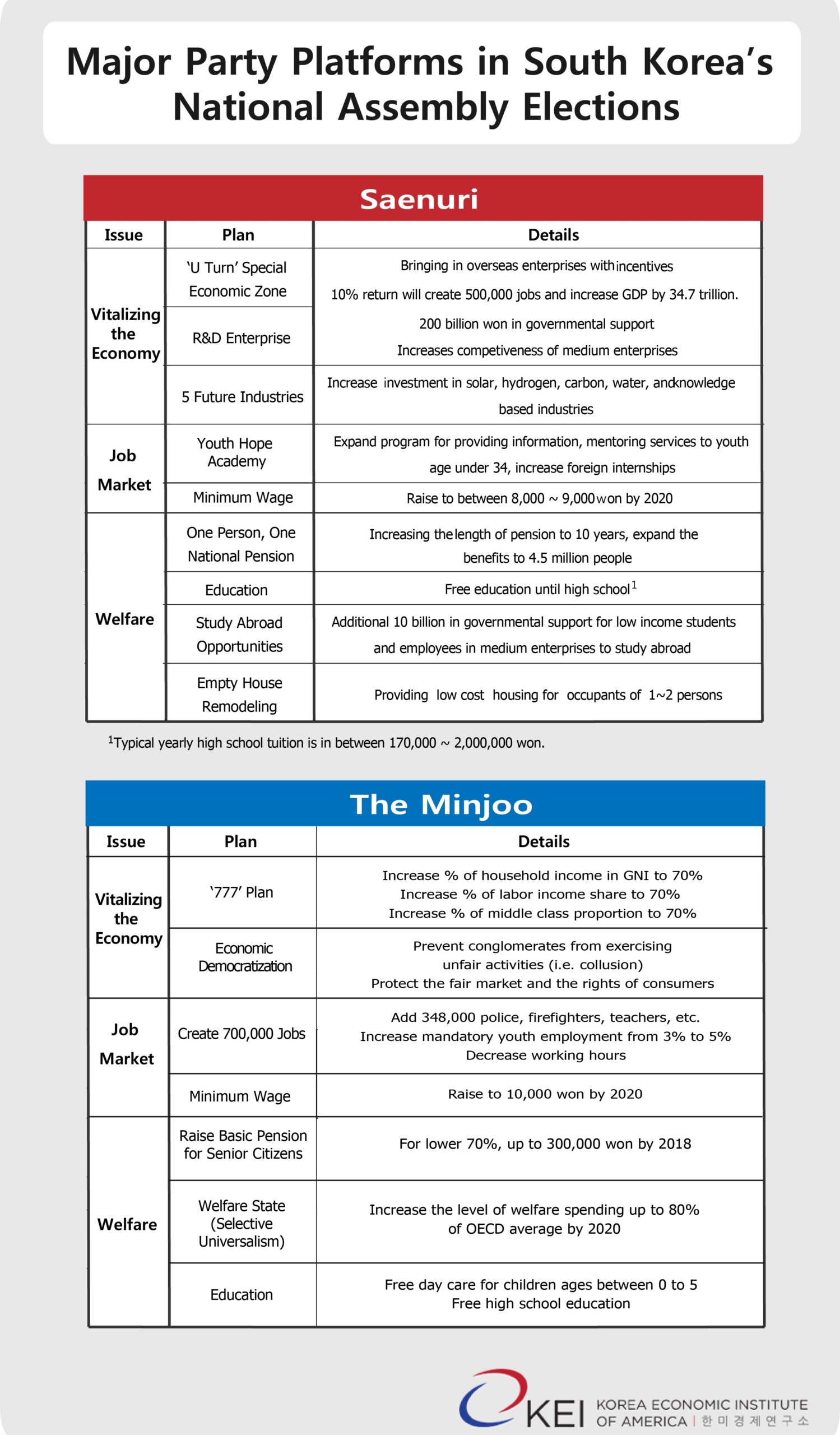The Peninsula
A Look at the Major Political Parties' Positions in the 2016 National Assembly Election

By Eunchong Moses Park
On April 13, 2016, South Korea will hold elections for the 20th National Assembly. Despite the tension from North Korea’s nuclear test and satellite launch earlier this year, the election has been fought largely on domestic issues rather than foreign policy.
With the campaign now underway, the National Election Commission has announced the ten major pledges of each party. The current majority party, Saenuri, emphasized the domestic economy and job creation as the centerpiece of its campaign, while the competing Minjoo Party emphasized greater cooperation in the marketplace over competition. Nonetheless the main focus of the both Saenuri and the Minjoo are on economic issues concerning the youth unemployment rate, growing inequality, and household debt. Below is a brief summation of each parties’ platform on the key economic issues.
Saenuri’s platform focuses on the domestic economy, developing the industries of the future, and bring about social equality. Saenuri’s solution to the economic problems is presented under the philosophy of the trickle-down effect, emphasizing the importance of businesses.
Specifically, Saenuri presented seven economic pledges: resolving the youth unemployment rate, proactive financial policy, decreasing the inequality gap, expanding welfare for senior citizens, supporting private business, decreasing household debts, and completing the four major reformations (labor, finance, public, and education.)
Under the idea of “economic democratization,” the Minjoo’s platform focus on three visions – growing together, solving inequality, and securing the society. The Minjoo emphasized the importance of ordinary people in resolving economic problems, and wishes to expand the government’s role in protecting and ensuring the rights of citizens and ordinary workers. Minjoo’s main policies include raising the minimum wage, closing inequality gap (“777 Plan”, detailed above), and higher wages for irregular workers.
Eunchong Moses Park is currently an Intern at Korea Economic Institute of America and an undergraduate studying International Relation at UCLA. The views expressed here are the authors alone.
Photo by Troy Stangarone, KEI.

